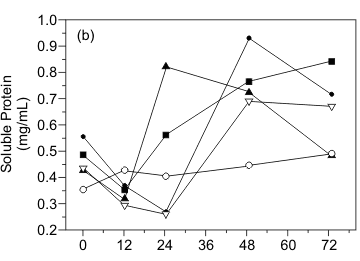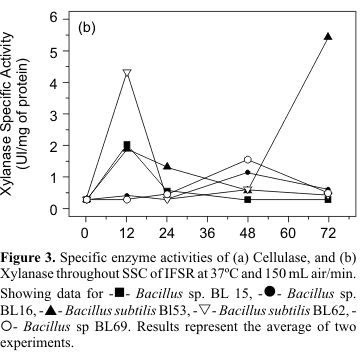In Brazil, a large amount of a fibrous residue is generated as result of soybean (Glycine max) protein production. This material, which is rich in hemicellulose and cellulose, can be used in solid state cultivations for the production of valuable metabolites and enzymes. In this work, we studied the bioconversion of this residue by bacteria strains isolated from water and soil collected in the Amazon region. Five strains among 87 isolated bacteria selected for their ability to produce either celullases or xylanases were cultivated on the aforementioned residue. From strain BL62, identified as Bacillus subtilis, it was obtained a preparation showing the highest specific cellulase activity, 1.08 UI/mg protein within 24 hours of growth. Concerning xylanase, the isolate BL53, also identified as Bacillus subtilis, showed the highest specific activity for this enzyme, 5.19 UI/mg protein within 72 hours of cultivation. It has also been observed the production of proteases that were associated with the loss of cellulase and xylanase activities. These results indicated that the selected microorganisms, and the cultivation process, have great biotechnological potential.
Solid-State cultivation; cellulase; xylanase; soybean residue; Amazon biodiversity







